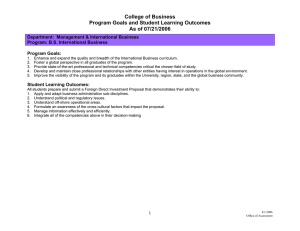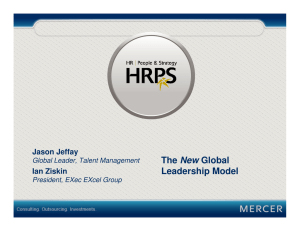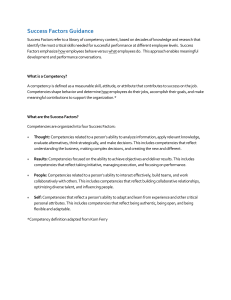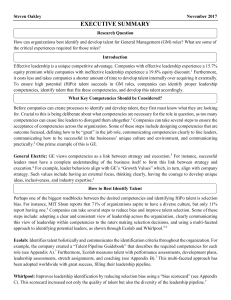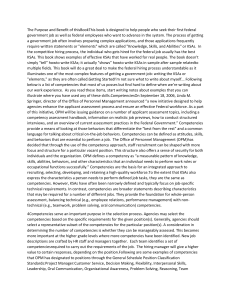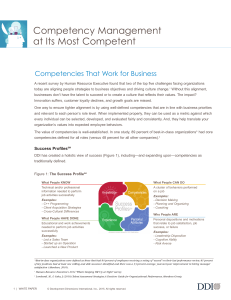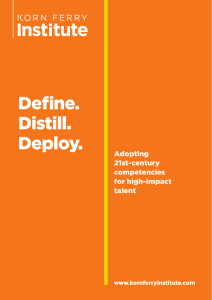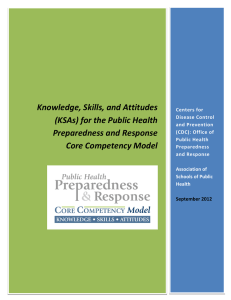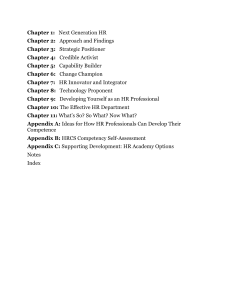- xi -
advertisement
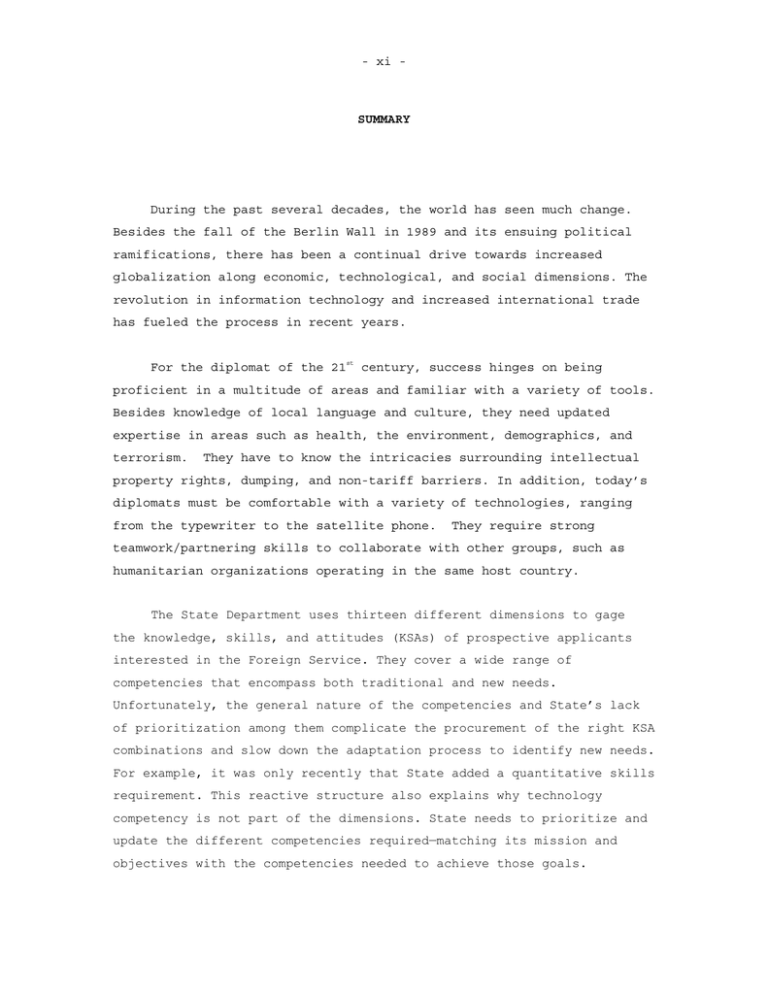
- xi - SUMMARY During the past several decades, the world has seen much change. Besides the fall of the Berlin Wall in 1989 and its ensuing political ramifications, there has been a continual drive towards increased globalization along economic, technological, and social dimensions. The revolution in information technology and increased international trade has fueled the process in recent years. For the diplomat of the 21st century, success hinges on being proficient in a multitude of areas and familiar with a variety of tools. Besides knowledge of local language and culture, they need updated expertise in areas such as health, the environment, demographics, and terrorism. They have to know the intricacies surrounding intellectual property rights, dumping, and non-tariff barriers. In addition, today’s diplomats must be comfortable with a variety of technologies, ranging from the typewriter to the satellite phone. They require strong teamwork/partnering skills to collaborate with other groups, such as humanitarian organizations operating in the same host country. The State Department uses thirteen different dimensions to gage the knowledge, skills, and attitudes (KSAs) of prospective applicants interested in the Foreign Service. They cover a wide range of competencies that encompass both traditional and new needs. Unfortunately, the general nature of the competencies and State’s lack of prioritization among them complicate the procurement of the right KSA combinations and slow down the adaptation process to identify new needs. For example, it was only recently that State added a quantitative skills requirement. This reactive structure also explains why technology competency is not part of the dimensions. State needs to prioritize and update the different competencies required—matching its mission and objectives with the competencies needed to achieve those goals. - xii - A comparative analysis of HR requirements among public, private, and non-profit organizations with international missions reveals that organizations are looking for individuals that possess: • Strong cognitive skills; • Interpersonal skills; • Ambiguity tolerance; • Teamwork skills; • Cross-cultural competency; and • Policy thinking capabilities These are consistent with State’s KSA requirements; not surprising given the generalized and non-prioritized nature of the thirteen dimensions used. As such, there is “direct competition” for talent between State and a growing body of international stakeholders across all three sectors. This presents a challenging situation for State who traditionally had few direct competitors and could rely on the prestige of the Foreign Service to attract candidates. With growing competition for talent, there is a strong need for effective recruitment and retention policies at State. In addition, there is a need to ensure that the working environment stimulates the use of critical competencies to boost performance. Analysis of NPR/OPM Employee Survey data show that State tends to lag the Department of Defense (DoD) and other federal agencies with respect to managerial communication, levels of flexibility provided to carry out work tasks, understanding of personal life responsibilities, and access to technology. As integral components for a productive modern workplace (both at the individual and organizational level), State faces an uphill battle. Trend data show that improvements are only perceived in the area of technology access over the 1998-2000. The State Department is doing well in terms of teamwork usage which is a positive development. - xiii - With respect to recruitment, State’s policies have not kept up with the need for a faster, more effective and streamlined process—something required in today’s highly interconnected environment characterized by greater competition for talent. Using current technology, it is easy for applicants to apply for multiple jobs across various locations. Speed and ease of the application process are increasingly important when candidates consider job options. State’s 8-24 month application pipeline is hurting its ability to recruit highly qualified individuals with sought-after KSAs. Policy changes in this area represent a good starting point to procure the diplomat of the 21st century. On the retention side, State faces challenges in the areas of salary, quality of life, and career development. On the positive side, State offers ample professional development for its employees.


